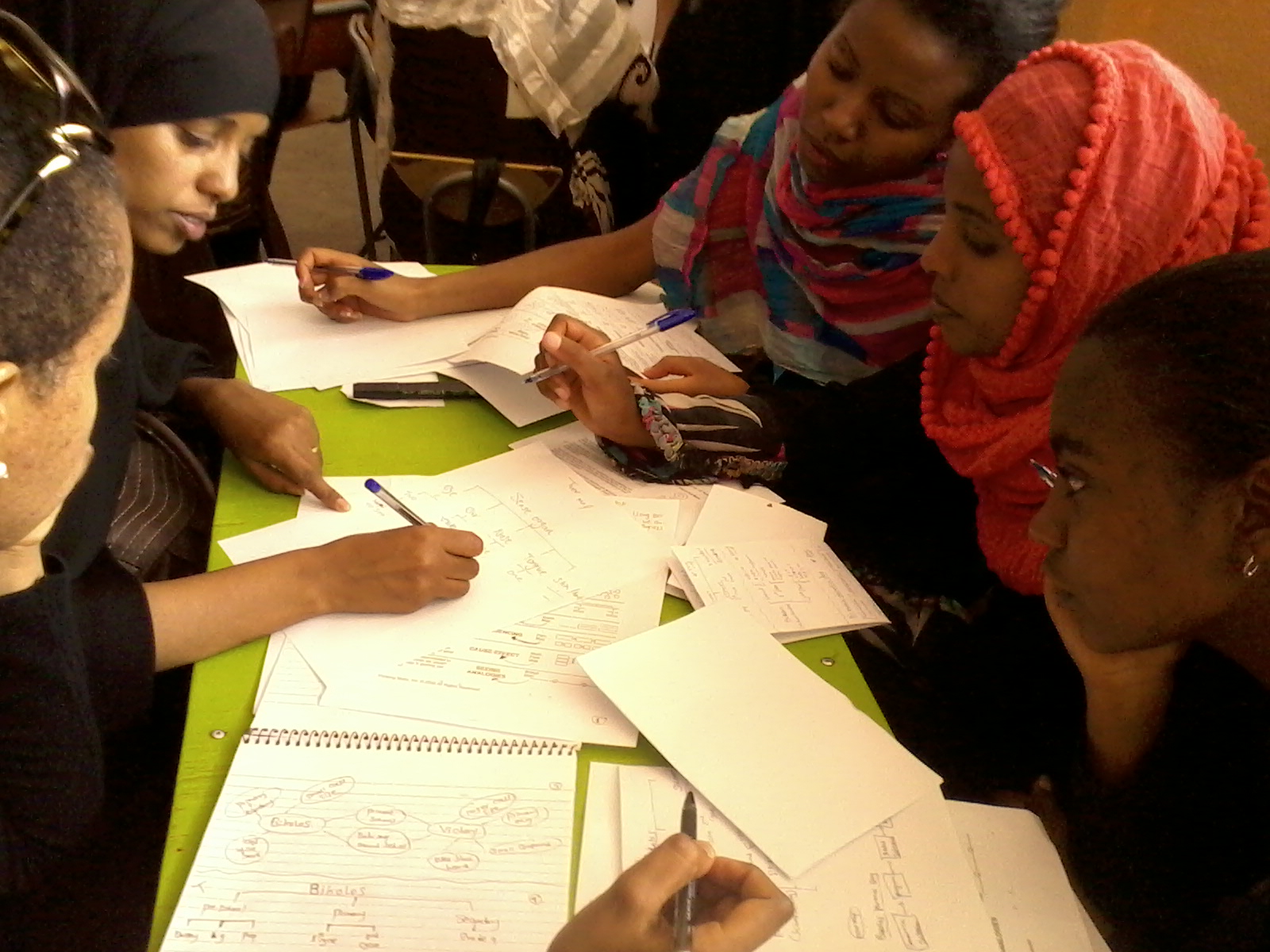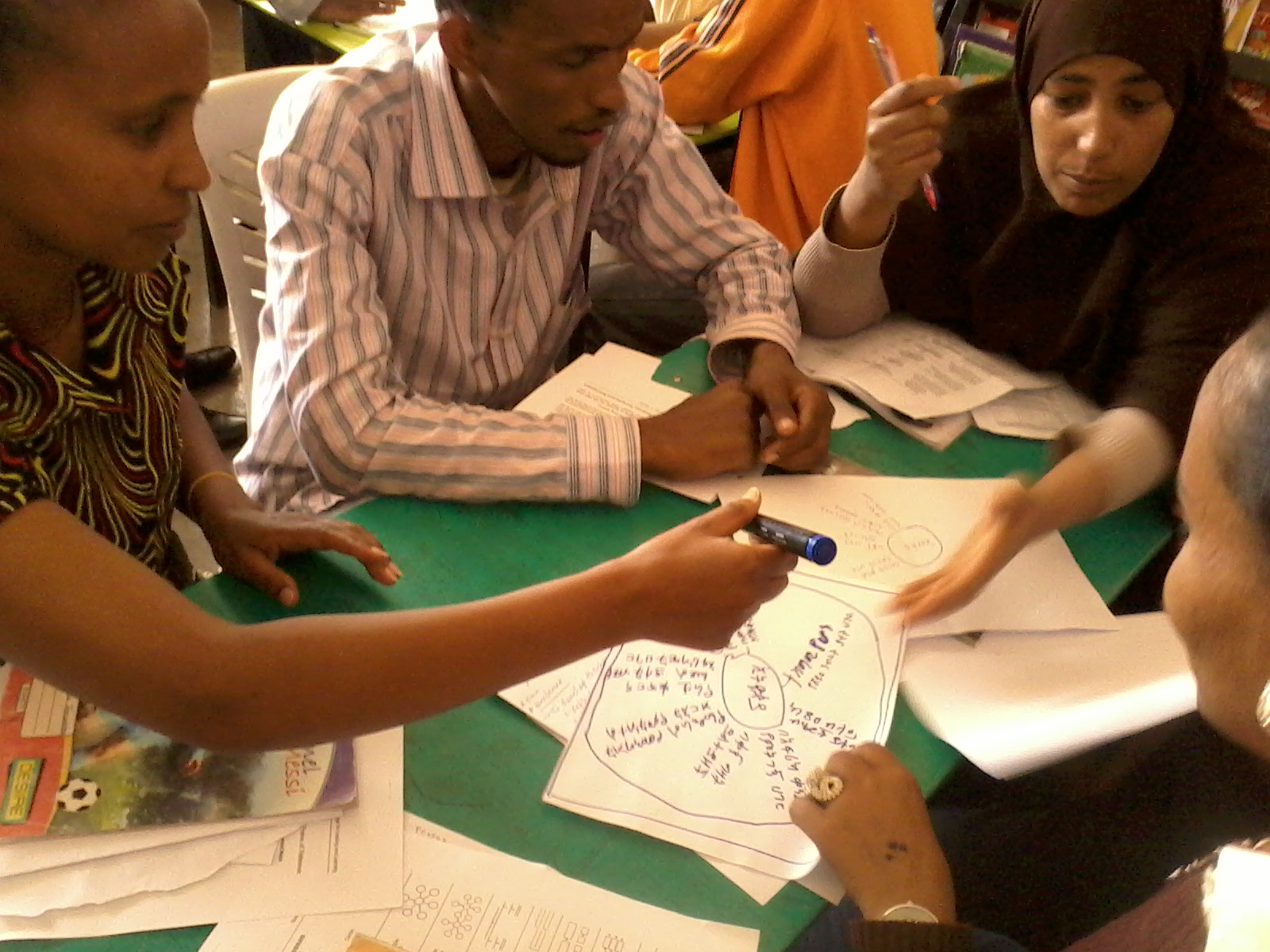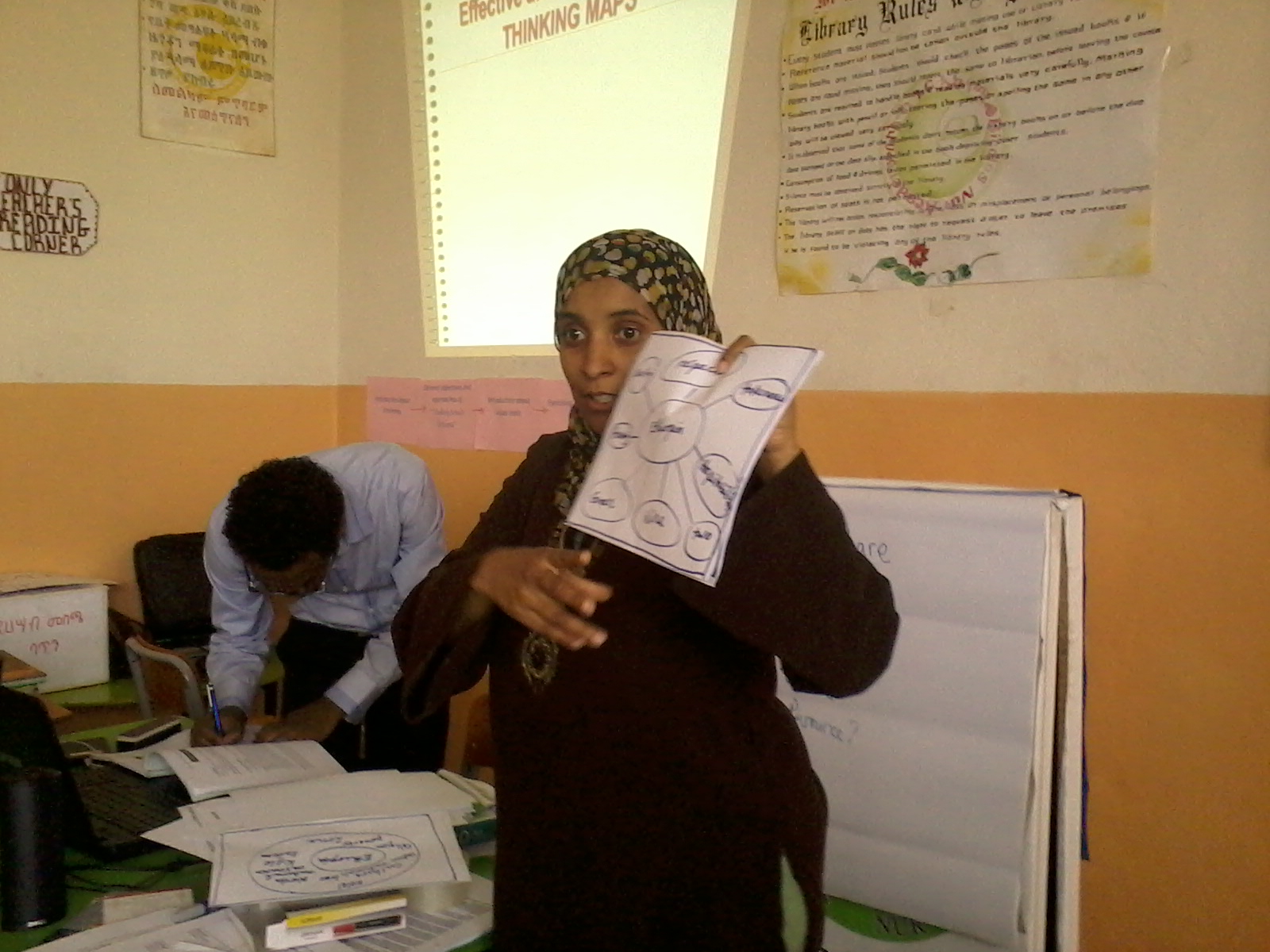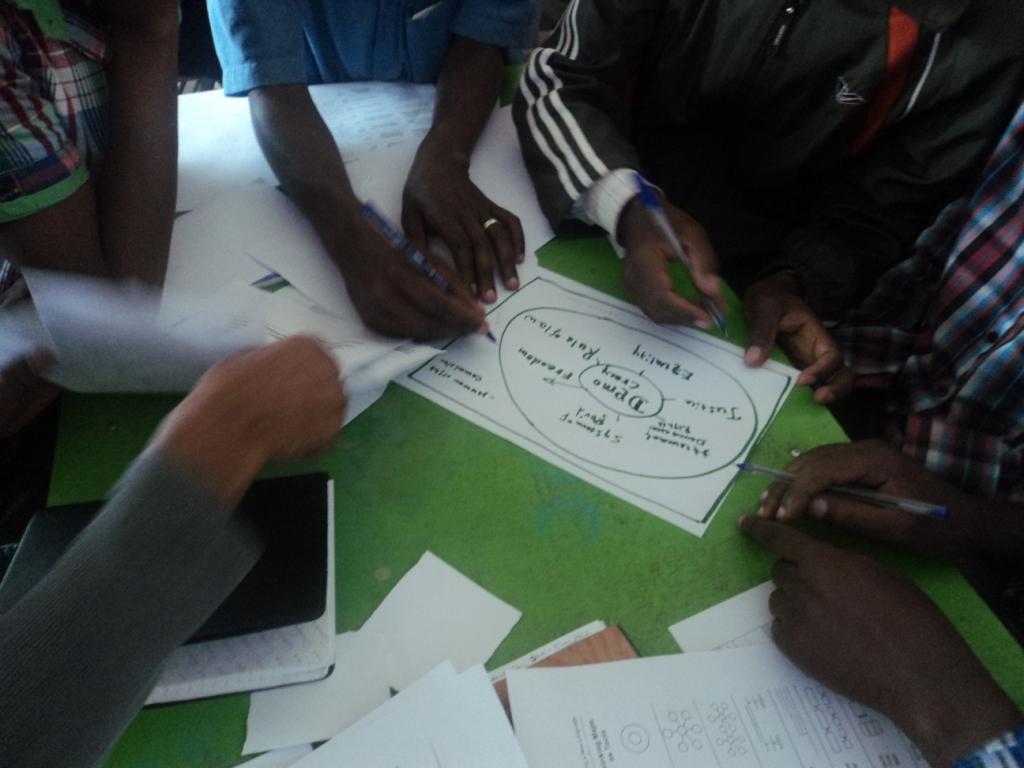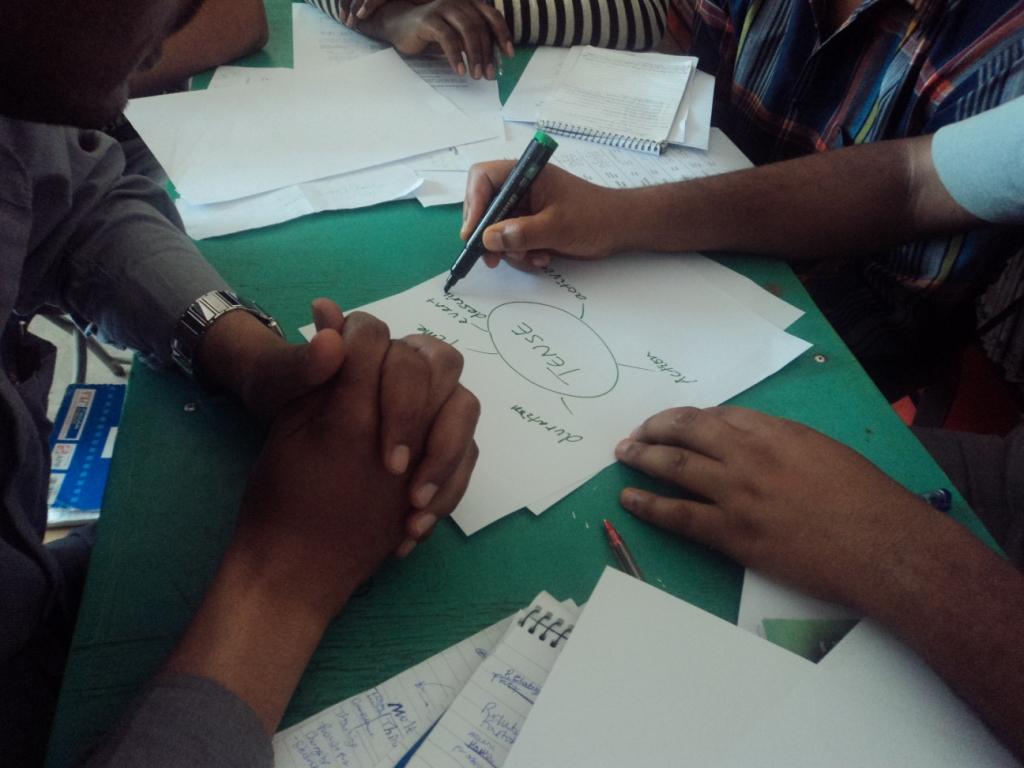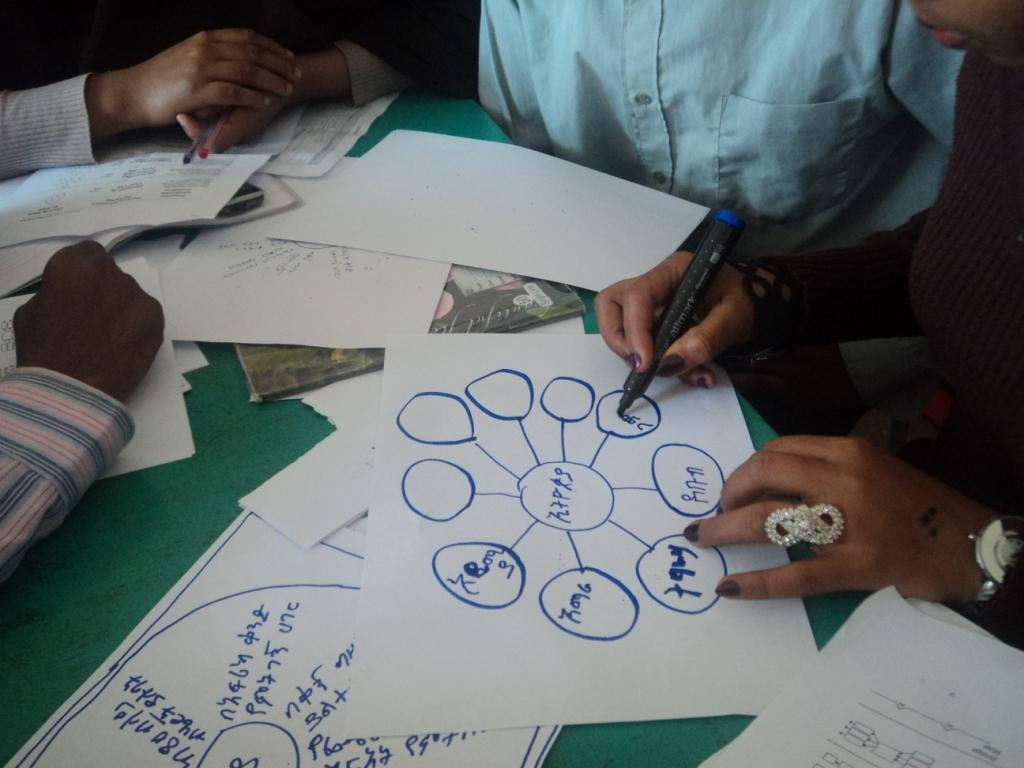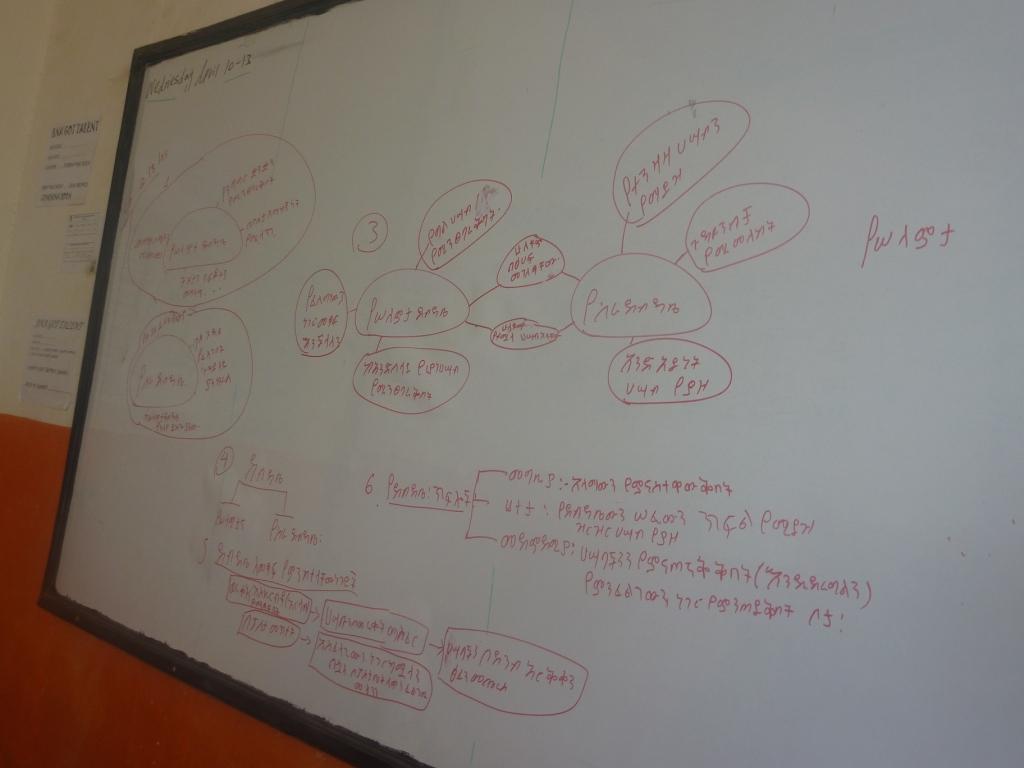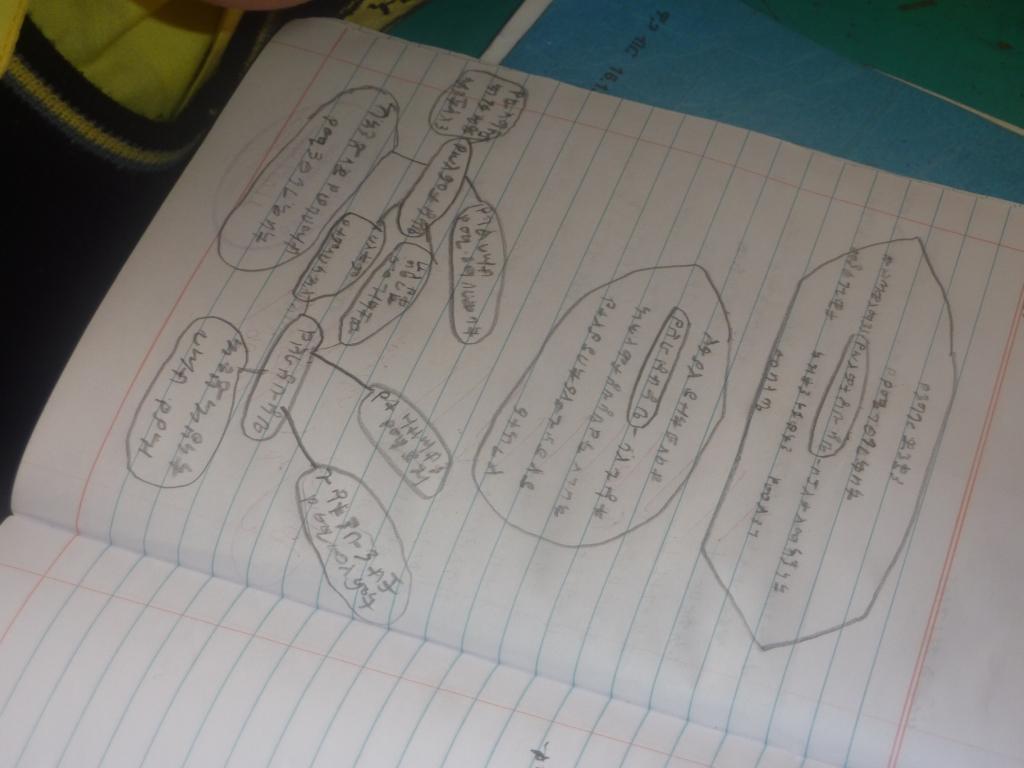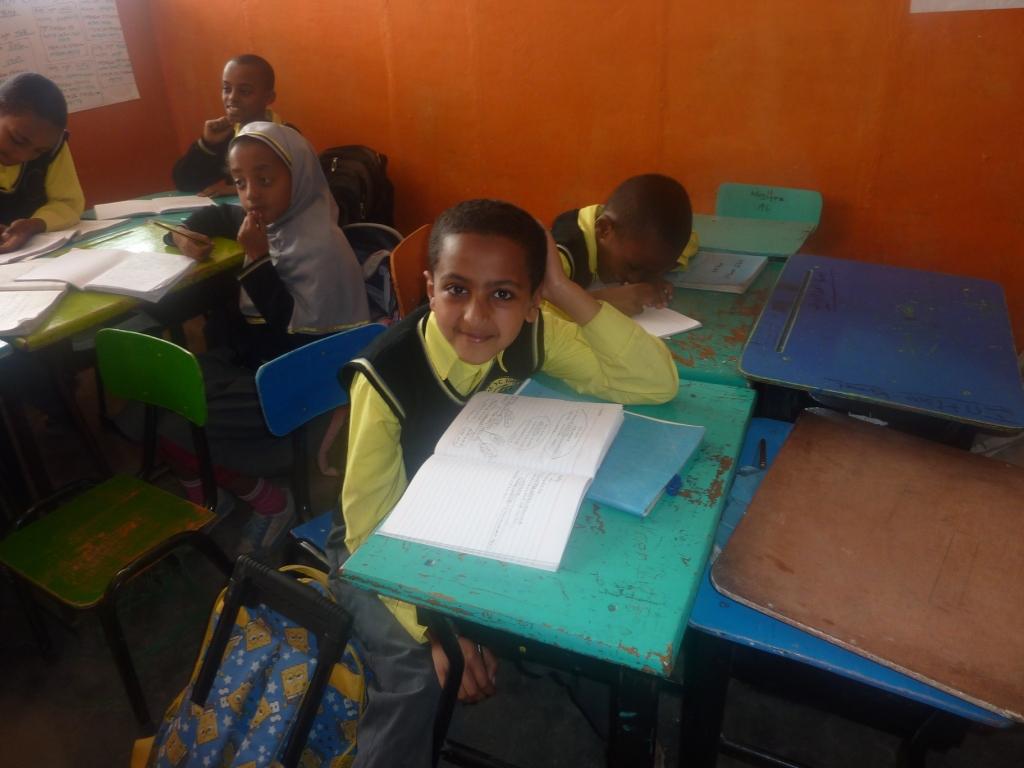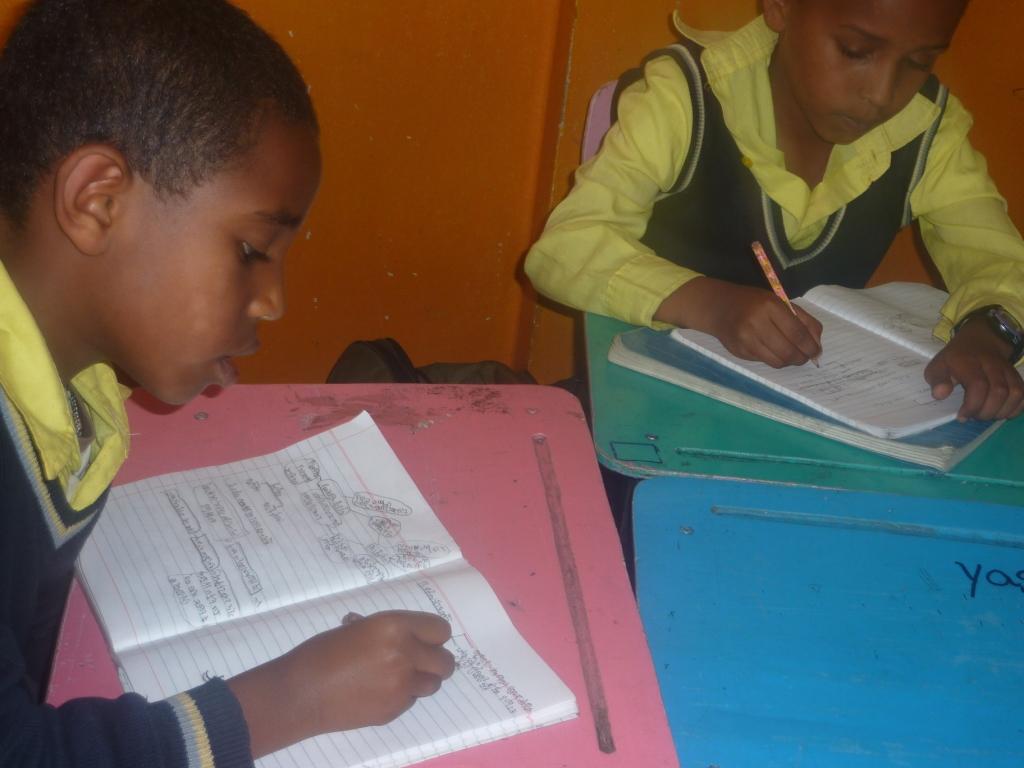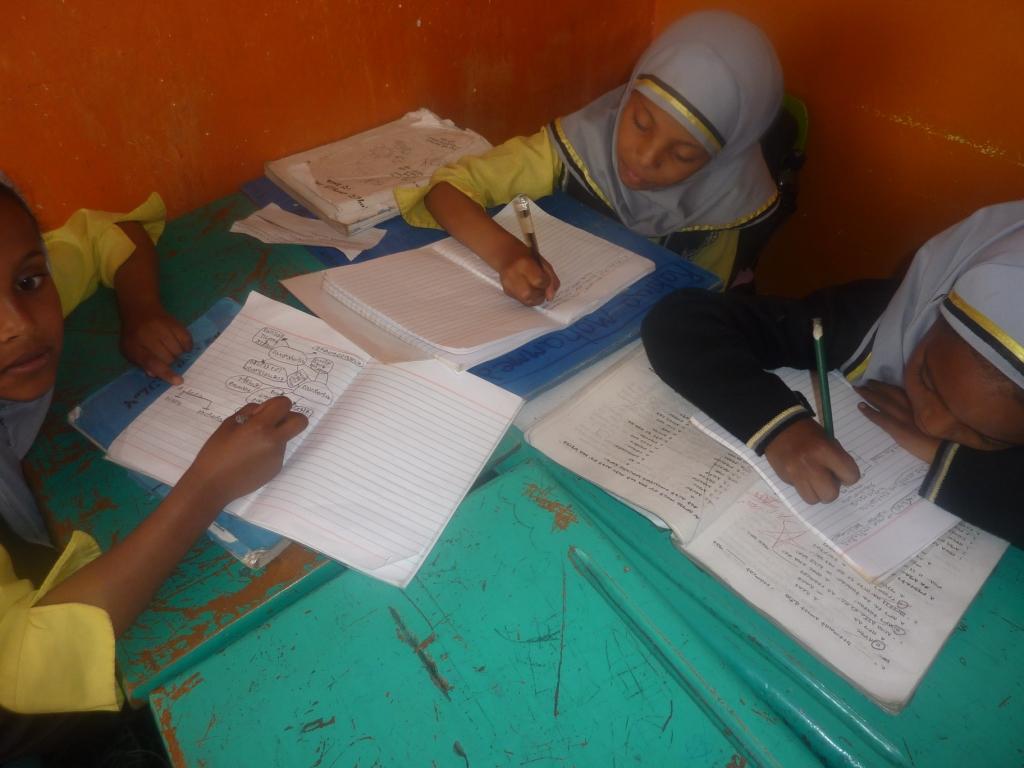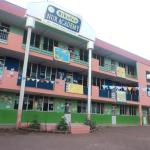
By Bereket Aweke
Read the Bikolos PDF file of students, teachers, school director reflections
Students and Teachers at Bikolos Nur Academy recently shared their reflections on the beginning pathways of implementing Thinking Maps as part of the Thinking Schools Ethiopia (TSE) whole school initiative. Thinking Schools Ethiopia (Eminence Social Entrepreneurs) Facilitators Bereket Aweke and Atsede Tsehayou conducted these interviews during the regular on-site professional development with the Bikolos Nur Academy staff. The on-site professional development supports the implementation including collegial coaching, demonstration lessons with students and building the capacity of the whole school staff.
The reflections below include students, teachers and administrators. These interviews are a regular part of the TSE process to document and assess the implementation of the Thinking Schools approach.
Bikolos Nur Academy Students

I really think that Thinking maps make a big difference in my life because before I really didn’t read my books much because it takes too much time to understand, but now I am interested to open my exercise books make Thinking Maps to actually study and know what I am reading. We can be independent and learn by ourselves, because Thinking Maps are our teachers. They make everything easy so that we can read and remember — it makes you visualize things. Thinking Maps capture our thinking in our mind.
Hannan Abdulfetah, Grade 9 Student
 Thinking Maps have helped me a lot in studying. Next year I am taking national exam. I am preparing my summaries using Thinking Maps because it is taking a shorter time with Thinking Maps. It is more effective because by looking at the circles and the other maps, I can remember what is inside and that makes it easier for me to study.
Thinking Maps have helped me a lot in studying. Next year I am taking national exam. I am preparing my summaries using Thinking Maps because it is taking a shorter time with Thinking Maps. It is more effective because by looking at the circles and the other maps, I can remember what is inside and that makes it easier for me to study.
Abdurahemen Kassim, Grade 9 Student
 We are using the maps very effectively and the class is now more student centered with everybody participating. The eight Thinking Maps are so helpful because we can do our work easily — for example our book is a huge book so it is tiresome and consumes much time. But you can use a piece of paper and draw maps and easily analyze the things about the subject in few minutes. When we do Thinking Maps in group work everybody is participating on it, so it is going to be fun and interesting.
We are using the maps very effectively and the class is now more student centered with everybody participating. The eight Thinking Maps are so helpful because we can do our work easily — for example our book is a huge book so it is tiresome and consumes much time. But you can use a piece of paper and draw maps and easily analyze the things about the subject in few minutes. When we do Thinking Maps in group work everybody is participating on it, so it is going to be fun and interesting.
Hussien Abdulnessir, Grade 9 Student
 Thinking Maps are very easy to use and to remember. Before when we work in groups there was not much argument but now we can easily visualize things and remember what you see in pictures in the mind. These maps are like pictures and have different designs and very easy to remember.
Thinking Maps are very easy to use and to remember. Before when we work in groups there was not much argument but now we can easily visualize things and remember what you see in pictures in the mind. These maps are like pictures and have different designs and very easy to remember.
Sabontu Ali, Grade 9 Student
Bikolos Nur Academy Faculty

I really want to thank the thinkers who give us Thinking Maps and make us think to ourselves and for our students. Thinking maps are very helpful. I have spent many years teaching chemistry and I have been trying many methods to visualize chemistry to students. The thinking maps made everything clear in these 2-3 weeks after the training.
Adefres Zerihun, Vice Director and Chemistry Teacher
 Thinking Maps makes our life easier and help us impart lessons which were difficult to comprehend. The students have accepted Thinking Maps in a very special way and related to the maps. I hope the Thinking Maps will go on so that we can give them what they deserve and we can get from you what we deserve.
Thinking Maps makes our life easier and help us impart lessons which were difficult to comprehend. The students have accepted Thinking Maps in a very special way and related to the maps. I hope the Thinking Maps will go on so that we can give them what they deserve and we can get from you what we deserve.
Huda Seid, Vice Director and English Teacher
 Starting with the Thinking Schools training, I understood that the training and the Thinking Maps is participatory. We were at the training on a Friday and started implementing Thinking Maps on Monday. The training has helped me a lot because before I had hard time delivering my subject to my students. But after learning the Thinking Maps and introducing the eight Thinking Maps to my students, my subject is understood more easily. We are always told about student centered teaching but it is with Thinking Maps I could involve all types of learners in my class. This is also the policy of our country and if we regularly implement them and get reference materials, we can even do better. Both the staff and the students have loved it and we thank you.
Starting with the Thinking Schools training, I understood that the training and the Thinking Maps is participatory. We were at the training on a Friday and started implementing Thinking Maps on Monday. The training has helped me a lot because before I had hard time delivering my subject to my students. But after learning the Thinking Maps and introducing the eight Thinking Maps to my students, my subject is understood more easily. We are always told about student centered teaching but it is with Thinking Maps I could involve all types of learners in my class. This is also the policy of our country and if we regularly implement them and get reference materials, we can even do better. Both the staff and the students have loved it and we thank you.
Mohammed Awol, Social Sciences Teacher
 I have used all the Thinking Maps except the Bridge Map in my grade 3 lessons. I am very excited. My students love the Thinking Maps and are internalizing the maps. The Thinking Maps are helping us to identify the level of the students. For example, some students remain in the circle map and others apply the other maps achieving higher order thinking in Blooms Taxonomy. So generally I am very happy as the Thinking Maps assists us in effective teaching methodology and students. Recent results have shown slight increment of growth from last quarter over a period of three weeks.
I have used all the Thinking Maps except the Bridge Map in my grade 3 lessons. I am very excited. My students love the Thinking Maps and are internalizing the maps. The Thinking Maps are helping us to identify the level of the students. For example, some students remain in the circle map and others apply the other maps achieving higher order thinking in Blooms Taxonomy. So generally I am very happy as the Thinking Maps assists us in effective teaching methodology and students. Recent results have shown slight increment of growth from last quarter over a period of three weeks.
Usman Mohammed, Grade 3 Science Teacher
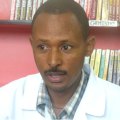 Thinking Schools Ethiopia is very interesting starting from the training. The Thinking Maps makes our minds visualize information. In this short time students are referring to and using the Thinking Maps more than the previous methods. All students are more active than the previously because they can easily understand the topics and remember what they are learning.
Thinking Schools Ethiopia is very interesting starting from the training. The Thinking Maps makes our minds visualize information. In this short time students are referring to and using the Thinking Maps more than the previous methods. All students are more active than the previously because they can easily understand the topics and remember what they are learning.
Zewdu Hailu, Vice Director and Physics Teacher

